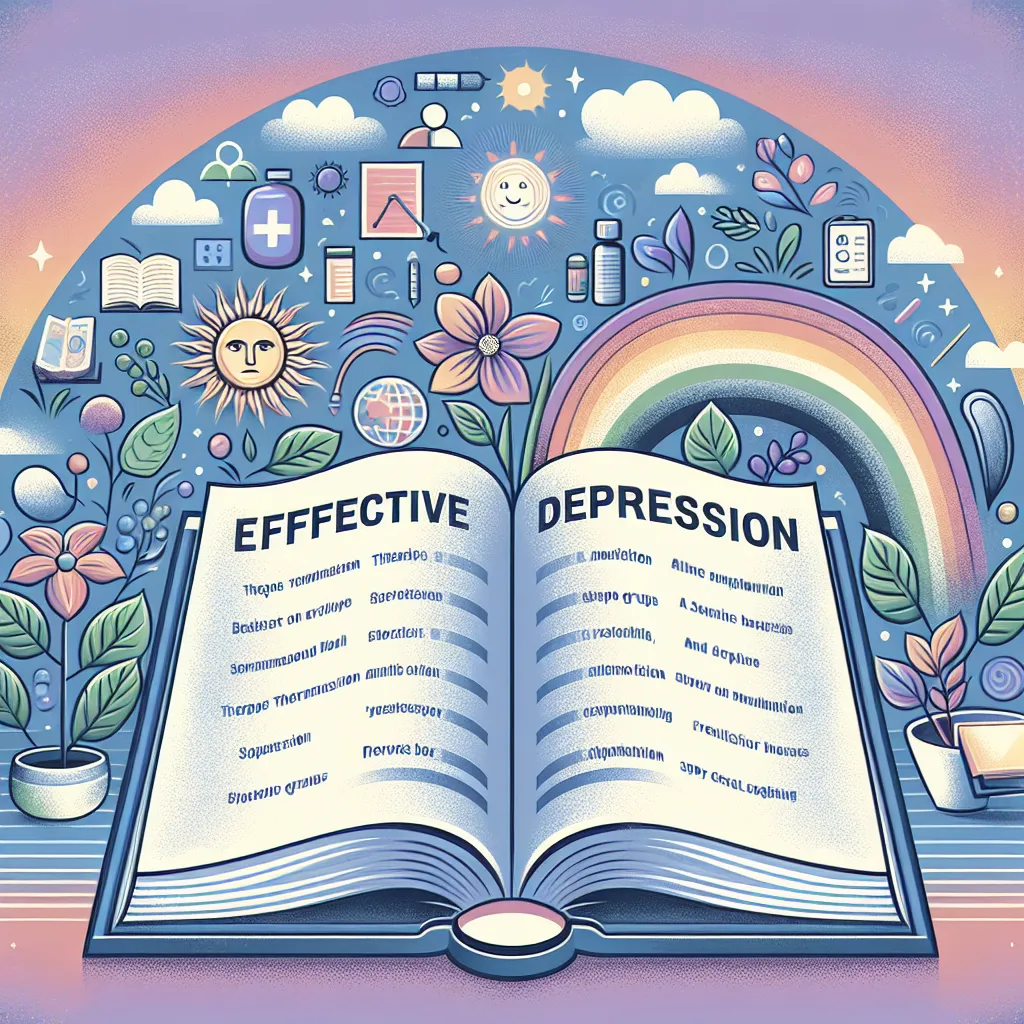Effective Depression Treatment: A Comprehensive Guide
Effective Depression Treatment: A Comprehensive Guide
Introduction
Depression is a prevalent mental health condition that affects millions of people around the world. It can have a significant impact on an individual’s daily life, relationships, and overall well-being. While depression is a complex disorder, there are various effective treatment options available. This article aims to provide a comprehensive guide to depression treatment, exploring different approaches, therapies, and lifestyle changes that can help individuals overcome depression and regain control of their lives.
1. Understanding Depression
Before delving into treatment options, it’s essential to understand the nature and symptoms of depression. Depression is characterized by persistent feelings of sadness, hopelessness, and a loss of interest in activities once enjoyed. Other common symptoms include changes in appetite and sleep patterns, fatigue, difficulty concentrating, and thoughts of self-harm or suicide. By recognizing the signs, individuals can seek help and begin their journey towards recovery.

2. Psychotherapy: Talking it Out
Psychotherapy, also known as talk therapy, is one of the most common and effective treatments for depression. It involves meeting with a trained therapist to discuss and explore emotions, thoughts, and behaviors that contribute to depression. Cognitive-behavioral therapy (CBT) and interpersonal therapy (IPT) are two popular forms of psychotherapy that have shown promising results in treating depression.
3. Medication: Balancing Brain Chemistry
In some cases, medication may be prescribed alongside psychotherapy to manage depression symptoms. Antidepressant medications work by balancing brain chemicals known as neurotransmitters, which play a crucial role in regulating mood. Commonly prescribed antidepressants include selective serotonin reuptake inhibitors (SSRIs) and serotonin-norepinephrine reuptake inhibitors (SNRIs). However, it’s important to consult a healthcare professional for personalized medication recommendations and to monitor any potential side effects.
4. Lifestyle Changes and Self-Care
Adopting a healthy lifestyle and practicing self-care can significantly contribute to managing depression. Engaging in regular physical exercise, maintaining a balanced diet, and getting enough sleep are all vital components of self-care that can positively impact one’s mental well-being. Additionally, incorporating stress-reduction techniques such as mindfulness, meditation, and relaxation exercises can help individuals cope with depressive symptoms and reduce their severity.
5. Support Networks
Building strong support networks is crucial for individuals battling depression. Surrounding oneself with understanding and compassionate friends, family, or support groups can provide a sense of belonging and reduce feelings of isolation. Sharing experiences and emotions with others who have faced similar challenges can provide valuable insights, encouragement, and validation.
6. Alternative Therapies
In addition to traditional treatments, alternative therapies have gained popularity in recent years for their potential benefits in managing depression. These may include acupuncture, yoga, art therapy, and herbal supplements. While more research is needed to fully understand their effectiveness, some individuals find these therapies to be helpful as complementary approaches to their overall treatment plan.
7. Seeking Professional Help
It’s important to emphasize that depression treatment is not a one-size-fits-all approach. Every individual’s experience with depression is unique, and what works for one person may not work for another. Seeking professional help from mental health experts, such as psychiatrists or psychologists, is crucial to receiving personalized care. They can assess the severity of depression, provide an accurate diagnosis, and recommend the most appropriate treatment options.
Conclusion
Depression can be a debilitating condition, but with the right treatment and support, it is possible to overcome its grip and regain a fulfilling life. From psychotherapy and medication to lifestyle changes, support networks, and alternative therapies, there are many effective approaches available. The key is to take the first step in seeking help and remain committed to the journey towards recovery. Remember, you are not alone, and there is hope for a brighter future.
